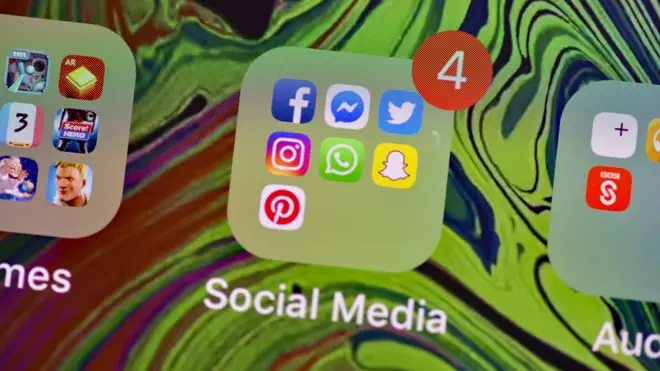
Ben Kentish 7am - 10am
3 September 2020, 14:04

Medics have sent a letter to the Government calling for legislation to prevent dangerous misinformation being spread online.
Social media giants have been accused of failing to act on anti-vaccine misinformation related to the coronavirus, even when it is reported to them.
A group of young volunteers scoured social networks and found 912 posts between July 21 and August 26, but only 4.9% were acted on after being flagged.
False posts that were uncovered range from suggesting vaccines can change people’s DNA or are poisonous, to widely-disputed claims linking the virus to 5G.
The Failure to Act report, by the Center for Countering Digital Hate (CCDH) and Restless Development, said Facebook took action on 33 of the 569 pieces of content brought to its attention, while Instagram acted on six out of 144 reported.
On Twitter, six out of 137 were dealt with, but on YouTube no action was taken on the 41 reported to the video sharing website.
The two groups say social networks are failing to act on their own policies.
Researchers also said that platforms have still not acted on three-quarters of misinformation highlighted in its previous report published in June.
A letter to Home Secretary Priti Patel, Health Secretary Matt Hancock, and Culture Secretary Oliver Dowden – signed by medics including Adam Kay, Dr Ellie Cannon, Dr Phil Hammond and Dr Dawn Harper – is calling for legislation to prevent dangerous misinformation about health and medicine being spread online.
“A coronavirus vaccine is our best hope of a return to normality,” said Imran Ahmed, chief executive of the Center for Countering Digital Hate.
“It would be a tragedy if it was unsuccessful in eradicating this disease because of lies told to people on social media.
“While we have made enormous sacrifices to keep our society safe, social media companies are undermining their effort by failing to enforce their own policies and claims to act on dangerous misinformation.
“Big tech has proven that they do not care, they will not act, and they only listen when their profits are on the line.
“Government must urgently legislate to ensure these platforms take down hate and misinformation that puts lives at risk.
“And companies who advertise on social media can make their voice heard too, by pausing their adverts until action is taken.”
Jo Stevens, shadow secretary of state for digital, culture, media and sport, responding to the report, said: “This research shows the shocking failure of social media companies to act.
“Misinformation about vaccines – especially during a pandemic – is a matter of life and death.
“We have called on the Government time and again to put the public health and safety before the interests of the big tech companies profiting on the back of a global pandemic and publish the long-awaited Online Harms Bill.”
Facebook, Twitter and YouTube all responded to the report by saying they are committed to the removal of harmful Covid-19 content.
“Since Covid-19 was declared a public health emergency we’ve taken aggressive steps to limit the spread of misinformation about the virus,” a Facebook spokesman said.
Meanwhile, Twitter said: “We’re prioritising the removal of Covid-19 content when it has a call to action that could potentially cause harm.
“As we’ve said previously, we will not take enforcement action on every tweet that contains incomplete or disputed information about Covid-19.”
YouTube said: “We’ve taken a number of steps to combat harmful misinformation, including removing content that violates our policies, surfacing more authoritative content for people searching for vaccination-related topics and showing information panels with sources for fact-checking information.”
A Government spokesman said vaccine misinformation was “completely unacceptable”, adding: “It is everyone’s responsibility to seek NHS advice, so that they have the right information to make the right choice.
“Since the start of the pandemic, specialist UK government units have also been working rapidly to identify and rebut false information about coronavirus, including working closely with social media companies.
“We are also developing world-leading plans to protect people online and will introduce legislation as soon as possible.”